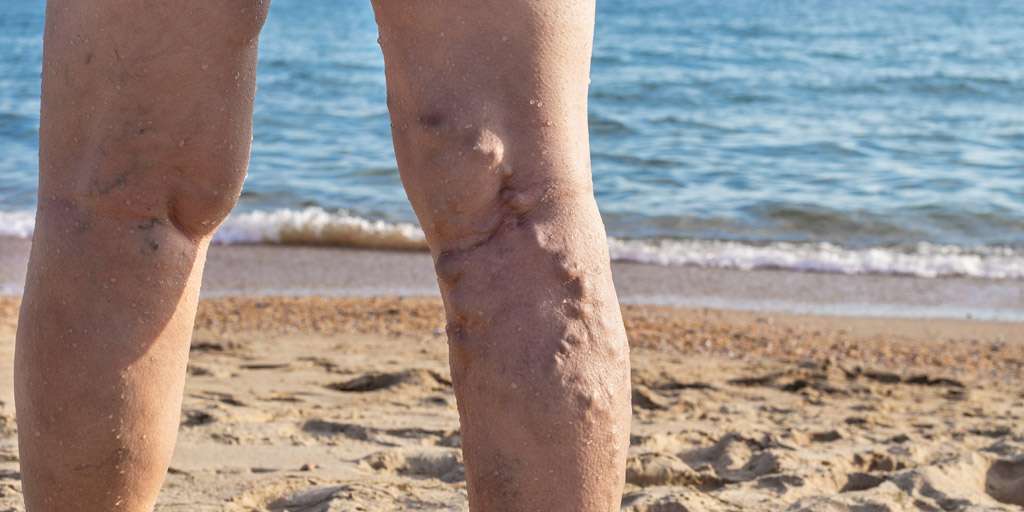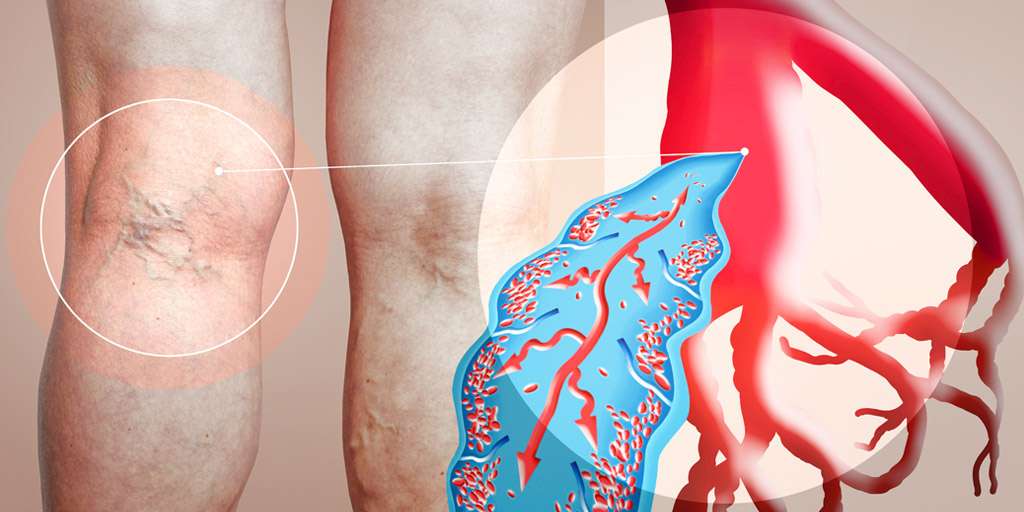9 Contributing Factors to Venous Disease

Most Common Causes of Venous Disease
At Fox Valley Surgical Specialists, we understand the complexities of venous disease and the profound impact it can have on quality of life. Venous disease affects the veins’ ability to carry blood from the legs back to the heart, leading to conditions such as varicose veins, chronic venous insufficiency, and even deep vein thrombosis (DVT).
Our vascular and endovascular specialists provide insights into the various contributing factors to venous disease to help our community understand, prevent, and manage these common vein-related conditions. Let’s talk about 9 common causes of venous disease:
1. Age
Aging is a natural part of life, but as people age, vein walls and valves tend to weaken, particularly in the legs.
This weakening can make it harder for blood to return to the heart efficiently, increasing the risk of blood pooling and leading to conditions such as varicose veins.
At FVSS, we see that venous issues often become more prominent for individuals over 50, though early prevention is always beneficial.
2. Genetics
Family history is a strong predictor of venous disease. If parents or close relatives have had varicose veins or similar conditions, there is a higher likelihood of developing venous disease. Genetic factors influence vein structure, valve integrity, and clotting tendencies.
Our team at FVSS is committed to providing personalized care for patients with a genetic predisposition to venous issues, aiming for early detection and preventive strategies.
3. Lifestyle and Physical Activity
Maintaining an active lifestyle is essential for vein health. Prolonged sitting or standing can slow circulation, increasing the risk of venous issues due to blood pooling.
At Fox Valley Surgical Specialists, many of our patients with sedentary lifestyles experience symptoms of venous disease, which regular movement and exercises targeting the leg muscles can help reduce.
At our vein clinic, we encourage incorporating daily activities, like walking, to support vein health.

4. Weight and Obesity
Excess body weight places increased pressure on the veins, particularly in the legs. This added pressure can lead to weakened vein walls and strained valves, contributing to venous disease.
Our FVSS team helps patients understand the benefits of weight management as part of vein health, offering guidance on lifestyle modifications and treatments to alleviate the impact of excess weight on veins.
5. Hormonal Changes
Hormonal shifts, particularly for women, can influence vein health. Pregnancy, menopause, and hormonal therapies can impact vein wall elasticity and blood volume. Pregnancy, for instance, often leads to painful varicose veins due to added abdominal pressure and increased blood flow.
FVSS specialists offer expert care for expectant mothers and women experiencing hormonal shifts, helping to manage and minimize vein-related symptoms.
6. Occupational Factors
Professions requiring long hours of standing or sitting, such as healthcare, retail, or office work, increase the risk of venous disease due to reduced leg circulation.
We advise our patients at FVSS to take short breaks to move and stretch, promoting circulation and alleviating strain on their leg veins. Small changes like these can significantly reduce the chances of developing venous complications.
7. Smoking
Smoking negatively impacts vascular health, including veins. Chemicals in cigarettes damage vein walls and reduce their elasticity, leading to poor blood circulation. Smoking also increases the risk of blood clots, putting smokers at heightened risk for DVT and pulmonary embolism.
Our vascular specialists offer support for smoking cessation, focusing on the health benefits for both veins and overall vascular function.
8. History of Leg Injury or Surgery
Previous leg injuries or surgeries can damage vein walls, causing scarring and reduced vein function.
At FVSS, our knowledgeable vascular team closely monitor patients with leg trauma or surgical histories for signs of venous disease, providing specialized care to help them manage their long-term vein health and minimize potential complications.
9. Pregnancy
Pregnancy is a unique factor in venous disease, where the body undergoes significant circulatory changes to support fetal development. Blood volume increases, and the uterus adds pressure on leg veins, often resulting in varicose veins.
The vascular team at Fox Valley Surgical Specialists are experienced in managing vein health for expectant mothers, offering support and treatment options to alleviate vein stress during and after pregnancy.
Venous Disease Prevention and Early Intervention
- Stay Active: Walk, cycle, or swim frequently, since these activities promote circulation and support vein health.
- Healthy Weight Management: Maintain a healthy weight to help reduce pressure on the legs.
- Break up Inactivity: Avoid extended periods of sitting or standing and take breaks whenever possible.
- Quit Smoking: This has numerous health benefits, including improved vein elasticity and circulation.
- Elevate Legs: When resting, elevating the legs can aid blood flow back to the heart and reduce blood pooling.

Our Venous Disease Treatments
The Fox Valley Surgical Specialists team is dedicated to helping patients understand their risk factors for venous disease and providing effective, individualized care. From therapies to advanced treatments, we are here to support your vein health with comprehensive care.
Depending on your specific condition, Fox Valley Surgical Specialists will offer Radiofrequency Endovenous Ablation, Laser Venous Ablation, VenaSeal, Varithena, Sclerotherapy, VeinGogh, and Microphlebectomy to help treat varicose veins, spider veins, Deep Vein Thrombosis (DVT), venous ulcers, May-Thurner Syndrome, and other venous diseases.
Contact Fox Valley Surgical Specialists Today!
With a deep understanding of venous health and the specific challenges faced by patients in the Fox Valley area, we work to deliver high-quality, personalized treatment for all stages of venous disease.
If you’re experiencing symptoms of venous disease or want to learn more about prevention, contact us today for a consultation with our skilled vein specialists. We are here to help you identify the causes of venous diseases and provide the right treatment to improve your vein health!
Leave a Reply